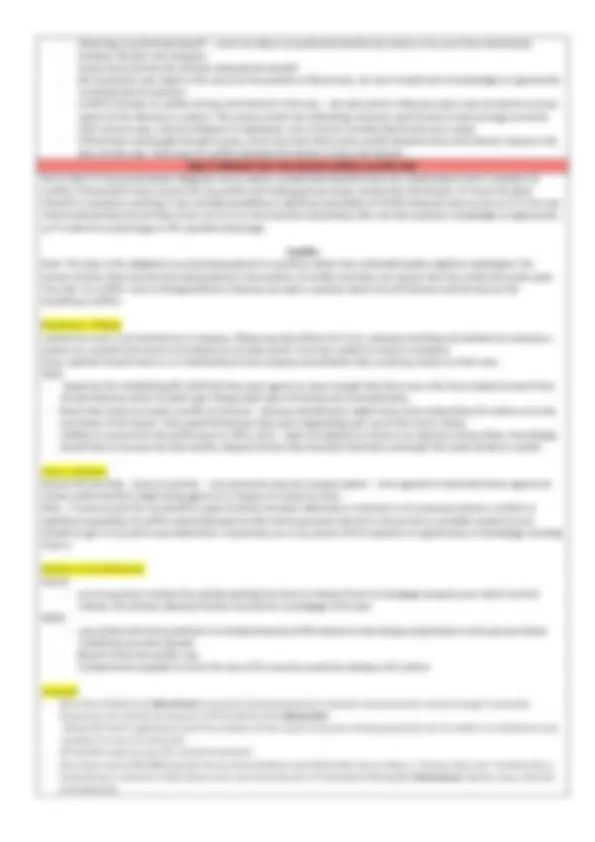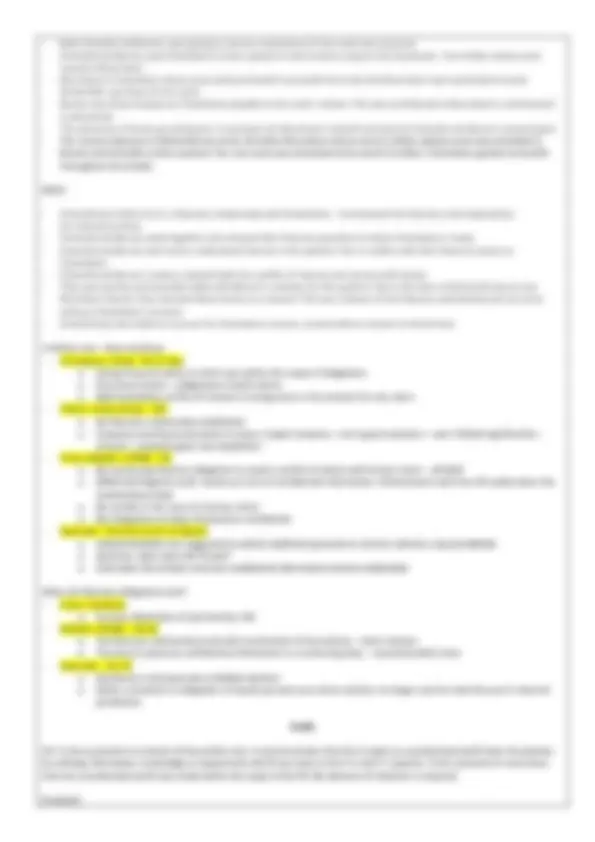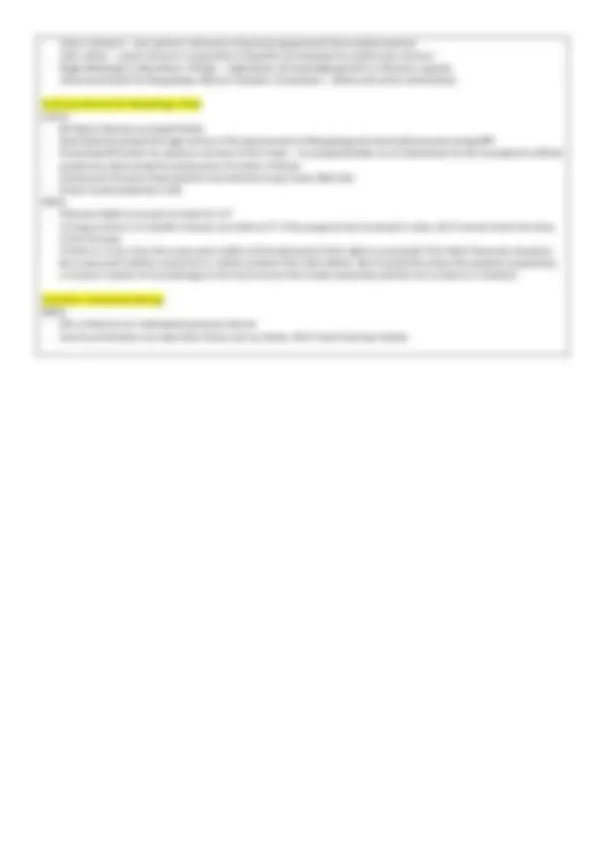
OS:$the$law$of$FR$is$concerned$with$certain$sorts$of$relationships$and$obligations$that$arise$from$those$relationships.$Equity$
protects$the$integrity$of$these$relationships.$It$must$be$established$whether$P$may$sue$D$for$breach$of$fiduciary$duty$in$relation$
%
- Trustee/beneficiary%–%Keech%v%Sandford%–%Trustee%cannot%take%up%opportunities%for%self,%even%if%trust%cannot%%%
$
RULE:$A$trustee$is$prevented$from$retaining$the$benefit$of$a$lease$that$is$renewed$in$his$own$name,$the$lease$having$previously$
been$held$on$trust.$If$a$trustee$does$renew$for$his$own$benefit$a$lease$that$was$previously$the$subject$matter$of$the$trust,$even$
in$circumstances$where$there$is$no$desire$for$or$prospect$of$the$lease$being$renewed$for$the$benefit$of$the$trust,$the$trustee$will$
be$irrebuttably$presumed$to$be$a$constructive$trustee$for$those$who$were$beneficially$interested$in$the$original$lease.$
$
- Agent/principal%–%McKenzie%v%McDonald%–%agent%can%only%buy%at%arm’s%length%%
$
RULE:$$Did$amount$to$a$FD.$The$agent$assumed$the$function$of$advising$and$assisting$the$women$in$the$acquisition$and$sale$of$
the$property.$The$agent$had$specialised$knowledge$of$the$market$and$her$position.$He$undertook$the$sale$of$the$farm$and$acted$
as$her$agent.$
- Employee/employer%–%Warman%v%Dwyer%–%even%where%business%is%poorly%run,%senior%ee’s%may%be%liable%for%breach%if%
taking%assets/knowledge%from%business%
$
RULE:$Breach$of$FD.$Dwyer$had$used$his$knowledge$and$his$position$as$a$senior$executive$officer$of$Warman$to$advance$his$own$
interests$and$those$of$the$other$D’s$to$Warman’s$disadvantage,$by$reducing$Bonfiglioli’s$confidence$in$Warman$and$offering$
himself$and$the$agency$staff$as$an$attractive$competitor$for$Bonfiglioli’s$business.$
$
- Director/company%–%Regal%Hastings%–%cannot%take%opportunity%and/or%special%knowledge%obtained%as%directors%in%their%
capacity%as%fiduciary’s%without%consent%
$
RULE:$In$the$circumstances,$the$directors,$other$than$the$chairman,$were$in$a$FR$to$the$appellant$company$and$liable,$therefore$
to$repay$to$it$the$profit$they$had$made$on$the$sale$of$the$shares.$
$
- Solicitor/client%–%Nocton%v%Lord%Ashburton%–%must%not%advise%client%if%it%gives%you%a%personal%advantage%%
$
RULE:$N$had$security$over$the$same$asset$that$he$advised$A$to$release.$There$was$a$factual$conflict,$even$though$N$may$not$be$
aware$or$did$not$act$dishonestly.$
$$
- Partner/partner%–%Chan%v%Zacharia%–%partner%cannot%directly/indirectly%use%partnership%assets%for%gain%%
(i)$C$was$in$breach$of$his$FD$as$partner$to$the$other$partner$
(ii)$he$was$a$constructive$trustee$for$himself$and$the$other$partner$of$the$interest$which$he$obtained$under$the$agreement$for$
lease$$
(iii)$Deane$and$Dawson$JJ:$the$former$partners$occupied$two$related$and$overlapping$roles$as$regards$legal$rights$under$the$
lease,$the$first$as$trustee$of$those$legal$rights$and$the$second$as$a$member$of$the$former$partnership$of$which$the$beneficial$
interest$in$those$rights$was$an$asset$and$that$there$was$an$irrebuttable$presumption$that$any$rights$in$respect$of$the$new$lease$
were$obtained$by$C$by$use$of$his$position$as$trustee$of$the$previous$tenancy$and$there$was$a$rebuttable$presumption$of$fact$
that$nay$such$rights$were$obtained$by$use$of$his$position$as$a$partner$in$the$dissolved$partnership$whose$assets$were$under$
receivership$and$in$the$course$of$realisation.$$
Partnership%Act%%
§ s3:$definitions$-$business$
§ s4:$equity$preserved,$unless$inconsistent$with$express$term$of$Act$
§ s5(1):$partnership$is$the$relation$which$subsists$between$persons$carrying$on$a$business$in$common$with$a$view$of$
profits…$
§ s5(2):$companies$are$not$partnerships$
§ s6:$rules$for$determining$existence$of$partnerships$(basically$taking$a$share$of$profits)$
§ s8:$meaning$of$‘firm’$
§ ss9,$10:$each$partner$is$agent$of$firm$(the$partnership)$and$his$other$partners.$Partner’s$acts$bind$the$firm$and$other$
partners$
§ s13:$partners$jointly$liable$with$other$partners$for$debts/obligations$of$firm$
§ s14:$firm$liable$for$partner’s$wrongs$














